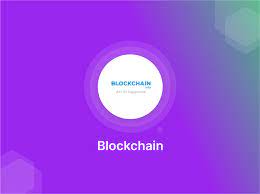
Blockchain Payment Gateway
A Blockchain Payment Gateway is a technology that facilitates the seamless and secure transfer of digital assets, typically cryptocurrencies, between two parties in a transaction. It acts as an intermediary that processes and verifies the payment, ensuring transparency, immutability, and decentralization through the use of blockchain technology.
Here's how a blockchain payment gateway generally works:
Initiation: The process begins when a payer initiates a payment using a cryptocurrency. This could be for purchasing goods, services, or transferring funds.
Verification and Encryption: The payment gateway verifies the transaction details, ensuring that the sender has sufficient funds and that the transaction is valid. The transaction data is then encrypted to protect it from unauthorized access.
Creation of Transaction Block: The transaction data, along with other relevant information, is grouped into a block. This block is then added to the blockchain through a consensus mechanism (such as proof-of-work or proof-of-stake), which ensures that the transaction is recorded and confirmed by the network.
Confirmation: Once the block is added to the blockchain, the payment is considered confirmed. This confirmation is crucial for both the payer and the recipient, as it provides proof of the transaction's completion.
Decentralization and Security: The transaction information is stored across multiple nodes in the blockchain network, making it highly secure and resistant to tampering. This decentralized nature eliminates the need for a central authority to oversee the payment process.
Real-time Monitoring: Both the payer and the recipient can monitor the payment process in real-time, ensuring transparency and accountability.
Completion: Once the payment is confirmed, the recipient can access and use the received funds, while the payer sees the deduction from their cryptocurrency wallet.
Benefits of a blockchain payment gateway include:
Security: Transactions are secured using advanced cryptography and distributed ledger technology, minimizing the risk of fraud and unauthorized access.
Transparency: Every transaction is recorded on the blockchain, providing an immutable and transparent record of payments.
Global Accessibility: Blockchain operates on a decentralized network, enabling cross-border payments without the need for intermediaries or currency conversion.
Reduced Fees and Processing Time: Traditional payment gateways may involve intermediaries, resulting in higher fees and longer processing times. Blockchain payments can potentially reduce these costs and speed up transactions.
Smart Contracts: Some blockchain payment gateways support the use of smart contracts, which automate and enforce the terms of the transaction, further streamlining the payment process.

It's important to note that while blockchain payment gateways offer numerous advantages, they may also face challenges such as scalability, regulatory compliance, and user adoption. As the technology continues to evolve, these challenges are being addressed to create more robust and user-friendly blockchain payment solutions.
Whmcs Crypto Payment
WHMCS (Web Host Manager Complete Solution) is a popular billing and automation platform used by web hosting companies and other businesses to manage their billing, invoicing, customer support, and other administrative tasks. WHMCS provides various payment gateway integrations, including support for crypto payments.
WHMCS crypto payment integration allows businesses to accept payments in cryptocurrencies such as Bitcoin, Ethereum, and other altcoins. Here's how it generally works:
Configuration: The business using WHMCS configures the crypto payment gateway of their choice within the WHMCS admin panel. This involves providing necessary API keys, wallet addresses, and other relevant information provided by the chosen crypto payment processor.
Customer Payment: When a customer makes a purchase or payment for services/products through the business's website, they can choose to pay using cryptocurrencies at the checkout page.
Invoice Generation: WHMCS generates an invoice for the customer's order, including the cryptocurrency payment option.
Crypto Payment: The customer selects the cryptocurrency payment option and follows the provided instructions. They initiate the payment by sending the required amount of cryptocurrency to the specified wallet address.
Payment Verification: The crypto payment processor receives the payment and verifies it on the blockchain. Once the payment is confirmed, the payment processor notifies WHMCS about the successful payment.
Invoice Update: WHMCS automatically updates the customer's invoice status to "Paid" once it receives confirmation from the crypto payment processor. This triggers further automated processes, such as service provisioning or sending download links for digital products.
Benefits of WHMCS crypto payment integration include:
Diversified Payment Options: Businesses can offer customers an additional method of payment, potentially attracting a broader customer base.
Global Reach: Cryptocurrencies enable international payments without currency conversion or cross-border fees, expanding the business's market reach.
Security: Cryptocurrency transactions are secure and irreversible, reducing the risk of chargebacks or payment fraud.
Faster Transactions: Cryptocurrency transactions can be faster compared to traditional payment methods, especially for international payments.
Lower Fees: Cryptocurrency transactions may have lower transaction fees compared to credit card payments, especially for high-value transactions.
It's important to note that while WHMCS crypto payment integration can offer advantages, businesses should carefully consider factors such as regulatory compliance, customer familiarity with cryptocurrencies, and potential price volatility of cryptocurrencies. Additionally, they should choose reputable and secure crypto payment processors for integration to ensure a smooth and secure payment experience for customers.
Appreciate the creator